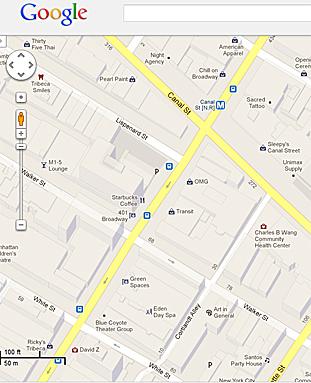Bo Yibo, father of Bo Xilai, the Communist Party head of the central-western megalopolis Chongqing, was one of the eight heavyweight leaders in China during Deng Xiaoping’s time. He helped Deng’s successor Jiang Zemin cover up Jiang’s family background, and paved Jiang’s path to the top. In return, Jiang helped Bo Yibo’s son, Bo Xilai, all the way from his position as a county official to becoming a central leader.
The Taiwan-based Want Daily reported on July 13, 2011, that in the spring of 1995, former Chinese leader Deng Xiaoping received a letter from Chen Xitong, the then-mayor of Beijing, and six other provincial level officials. In the letter, they reported that Jiang’s father was a traitor and worked for the Japanese during the Sino-Japanese War. In China, this accusation is serious enough to disqualify Jiang from being a medium or high level Party official. Deng passed the letter to Bo Yibo wanting him to take care of it. Bo instead showed the letter to Jiang, who begged for Bo’s help. From then on, the two colluded.
Bo Yibo successfully persuaded Deng not to go after Jiang about his problematic family background. Soon after that, he helped Jiang to remove Chen from his post as Beijing mayor, and Jiang began to help his son Bo Xilai.
Deng died in 1997. Before he died, he had taken power from the hands of former Chinese leader Yang Shangkun and former general of the People’s Liberation Army Yang Baibing. Qiao Shi, the then-Chair of the People’s Congress and next most powerful person in line, became a thorn in Jiang’s side. Qiao had the Political-Legal system and People’s Congress behind him, and his experience and talents were highly regarded by senior members of both the reformer and hardline factions, which made Jiang jealous. Forcing Qiao to retire at the 15th National People’s Congress became Jiang’s next step.
Click this tag to read The Epoch Times’ collection of articles on the Chinese Regime in Crisis. Intra-CCP politics are a challenge to make sense of, even for veteran China watchers. Here we attempt to provide readers with the necessary context to understand the situation.
Jiang made another deal with Bo Yibo. Bo promised Jiang to pressure Qiao to retire; Jiang promised to give his son Bo Xilai a lot more “attention and care.” The 89-year-old Bo Yibo walked to Qiao with trembling legs and told Qiao, who was 74-years-old at the time, that during the 15th National Congress, a new rule would be set so the age limit for remaining in the office would be 70. Qiao retired shortly after the 15th National Congress in 1998; the then 71-year-old Jiang stayed, becoming the most powerful person in the core political circle.
Before Qiao retired, he released a piece of information: Deng picked Hu Jintao as the next successor. He also suggested a set of regulations for officials to retire before the age of 70 and requested that Jiang turn over power to Hu. This put Jiang and his group in a somewhat passive situation.
Jiang had to “pay attention and care” to Bo Xilai since Bo Yibo knew Jiang’s secret family past, and also the dirty tricks of his political career. Shortly after Bo Xilai renewed his term as the mayor of Dalian in January 1998, Jiang promoted him to the governor of Liaoning Province, and later the Minister of Commerce.
There were other deals between Jiang and Bo Yibo. For example, Jiang settled a 4.7 billion yuan (US$700 million) embezzlement scandal by Bo Xilai and his brother. In the matter of cracking down on Falun Gong, a peaceful spiritual practice founded in China in 1992, Bo Yibo offered Jiang a lot of ideas so Bo Xilai could “lead the way” in Jiang’s illegal persecution of the practitioners.
This is why the most barbaric acts during the persecution—the organ removal from living Falun Gong practitioners for profit—originated and was discovered in Liaoning Province, where Bo Xilai was the governor beginning in 2001.
Bo Xilai and his right-hand-man, former police chief of Chongqing, Wang Lijun, actively participated in Jiang’s suppression of Falun Gong. Between 2000 and 2003, Liaoning Province imprisoned a large number of Falun Gong practitioners who were arrested for protesting in Beijing and refused to reveal where they came from. These practitioners were the main source of organs from Liaoning’s forced labor camps.
In recent years Jiang’s influence has subsided and his opponents have begun to fight back. According to insiders, the recent wave of infighting began with retired senior statesmen, including Qiao Shi, wanting to strike at Bo Xilai by raising the issue of removal of Wang Lijun from office. Bo Yibo forcing Qiao to retire may be one of the reasons that Qiao is taking on Bo Xilai.
According to unconfirmed reports, information provided to U.S. officials by Wang Lijun in his recent defection attempt exposed Bo Xilai and Zhou Yongkang’s conspiracy to topple Xi Jinping. This alleged conspiracy forces Jiang to cut his tail and give up Bo, or forces him to cut off his right arm and give up Zhou, Secretary of the Central Political and Legislative Committee, to save himself.
While the CCP tries to make itself look harmonious on the outside, on the inside it is a matter of life and death struggles. The unspoken rule in the core political circle has been that any scandal or “corruption-combating movement” stops at the ministry level, so the true story is never exposed. Whoever violates this rule dies. Wang Lijun, a low-level enforcer, did not bother to follow this rule, and the result may be the unraveling of the Party’s power structure.
Read the original Chinese article.



